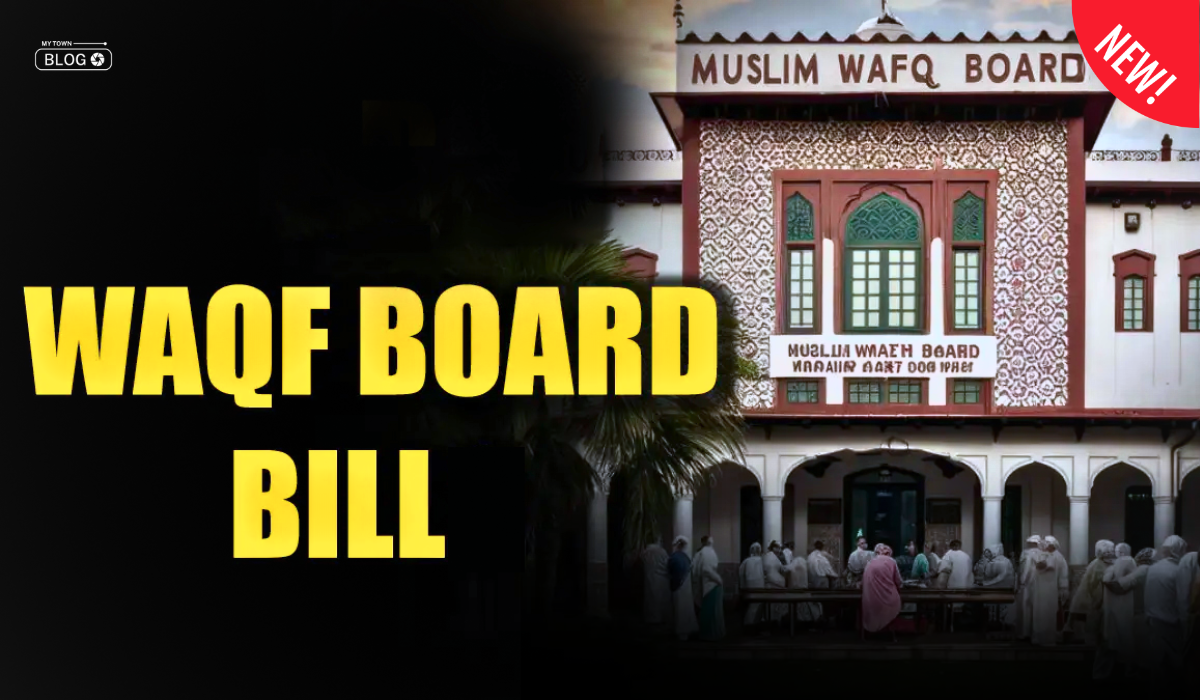The Waqf (Amendment) Bill, 2025, introduced in the Indian Parliament, proposes significant reforms to the management and governance of waqf properties—assets dedicated for religious or charitable purposes under Islamic law. These amendments aim to enhance transparency, inclusivity, and efficiency in the administration of waqf assets.
Waqf properties have historically played a crucial role in supporting educational, religious, and social welfare institutions in the country. However, concerns over mismanagement, encroachments, and lack of transparency have prompted the government to bring in amendments that seek to modernize waqf management while addressing legal loopholes. This article delves into the key aspects of the Waqf Amendment Bill 2025, its implications, and the reactions from various stakeholders.
What is Waqf?
Waqf refers to the permanent dedication of movable or immovable property by a Muslim for religious, pious, or charitable purposes. Once established, waqf properties are managed by waqf boards to serve the intended beneficiaries. Unlike other assets, waqf properties cannot be sold, inherited, or transferred, making them a unique feature of Islamic endowments.
Waqf properties often include mosques, schools, orphanages, graveyards, and commercial buildings whose revenues are used for community welfare. However, lack of proper governance has led to cases of encroachments, disputes, and misappropriation of funds, prompting the need for stronger legal frameworks.
Key Features of the Waqf Amendment Bill 2025
1. Formation and Declaration of Waqf
- Eligibility Criteria: The bill stipulates that only individuals who have practiced Islam for at least five years and own the property can declare it as waqf. This measure aims to prevent fraudulent declarations and misuse of the waqf system for personal gains.
- Abolition of ‘Waqf by User’: The concept of ‘waqf by user,’ where long-term public use could designate a property as waqf, is removed to prevent unauthorized claims. This move seeks to address disputes over properties that have been informally used for religious purposes over extended periods without official documentation.
- Protection of Inheritance Rights: The bill ensures that creating a waqf cannot deny inheritance rights, particularly safeguarding female heirs. This addresses concerns over families being deprived of their rightful property under the pretext of waqf declarations.
2. Management and Composition of Waqf Bodies
- Central Waqf Council: The amendments propose a more inclusive Central Waqf Council, including non-Muslim members and ensuring representation of Muslim women. This restructuring aims to bring diverse perspectives and expertise into waqf management.
- State Waqf Boards: State governments are empowered to nominate members to the Waqf Boards, including representatives from Shia, Sunni, and Backward Classes of Muslims, with mandatory inclusion of two Muslim women and two non-Muslim members. This ensures broader representation and more accountable administration.
3. Survey and Administration of Waqf Properties
- Role of District Collector: The responsibility for surveying waqf properties is assigned to the District Collector, replacing the earlier role of the Survey Commissioner. This aims to streamline the process and reduce bureaucratic delays in property identification and documentation.
- Government Property Identification: Any government property mistakenly identified as waqf will be re-designated as government-owned, with the District Collector investigating such cases and updating revenue records accordingly. This provision seeks to address longstanding disputes over land ownership.
4. Legal and Administrative Oversight
- Tribunal Composition: The bill restructures waqf tribunals by removing the requirement for a member knowledgeable in Muslim law and including a joint secretary-level officer, with a current or former District Court judge as chairperson. This is expected to bring a more neutral and legally robust approach to dispute resolution.
- Appeals Process: It introduces the provision for appeals against tribunal decisions to the High Court within 90 days, enhancing legal recourse for affected parties.
- Central Government Oversight: The central government gains authority to direct audits of waqf accounts through the Comptroller and Auditor General (CAG) or a designated officer, aiming for greater transparency. This is seen as a significant step toward curbing financial mismanagement.
Implications and Community Reactions
The proposed amendments have elicited varied responses:
- Concerns Over Autonomy: Some Muslim organizations and opposition parties view the bill as an attempt to increase government control over waqf properties, potentially undermining the autonomy of waqf institutions.
- Political Motivations: Critics suggest that the timing and content of the bill may be politically motivated, especially with upcoming elections, and could exacerbate communal tensions.
- Support for Inclusivity: Proponents argue that including women and non-Muslims in waqf bodies promotes inclusivity. They see it as a progressive step toward gender equality and broader representation.
Challenges and Possible Future Amendments
While the bill aims to streamline waqf administration, some challenges remain:
- Implementation Hurdles: Ensuring smooth implementation across states with diverse demographic and religious compositions may be challenging.
- Legal Disputes: The removal of ‘waqf by user’ may lead to increased litigation over historical properties.
- Resistance from Religious Bodies: Some religious institutions may resist government oversight, citing concerns over interference in religious endowments.
Future amendments may need to address these concerns through wider stakeholder consultations and balancing state oversight with community autonomy.
Conclusion
The Waqf Amendment Bill 2025 introduces key reforms to improve transparency and efficiency in waqf management. Moreover, while it aims to ensure better governance and proper utilization of waqf properties for community welfare, however, concerns have been raised about its impact on institutional autonomy and Muslim community rights. As a result, as the bill moves through legislative review, its long-term implications on waqf governance will be closely observed.
FAQ’s
What is the main objective of the Waqf Amendment Bill 2025?
The bill aims to enhance transparency, inclusivity, and efficiency in managing waqf properties. It also seeks to address legal loopholes and prevent misuse.
How does the bill impact waqf governance?
It introduces reforms such as restructuring waqf bodies and improving property surveys. Additionally, it increases government oversight to ensure better accountability and management.
Why is the removal of ‘waqf by user’ significant?
The removal prevents unauthorized claims over properties informally used for religious purposes. This helps reduce legal disputes and ensures proper documentation.
What concerns have been raised about the bill?
Critics argue that it may undermine the autonomy of waqf institutions and increase government control. They also warn of potential legal disputes over historical waqf properties.








